The views expressed in our content reflect individual perspectives and do not represent the official views of the Baha'i Faith.
The real voyage of discovery consists not in seeking new landscapes but in having new eyes. – Marcel Proust
The Delano grape strike began on September 8, 1965. A few months later, on March 17, 1966, Cesar Chavez walked three hundred miles from Delano to Sacramento, California. He called this journey a pilgrimage to seek justice. In a document circulated around the same time, he wrote:
Many of the ‘pilgrims’ of Delano will have walked such pilgrimages themselves in their lives – perhaps as very small children even; and cling to the memory of the day-long marches, the camps at night, streams forded, hills climbed, the sacral aura of the sanctuary, and the fiesta that followed…They hope by the march to set themselves at peace with the Lord, so that the justice of their cause will be purified of all lesser motivation.
This September marks the 50th anniversary of the beginning of the five-year grape strike. When I think about the men and women who joined Chavez, I wonder how that long walk changed them.
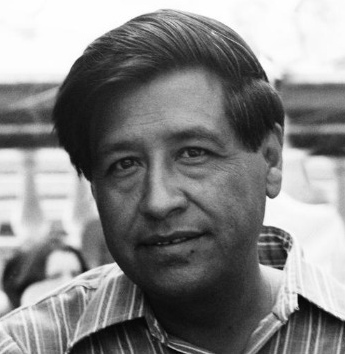
Cesar Chavez
What parts of themselves did they leave on the roadside? What burdens did they set down, to move forward, toward freedom? What gifts and graces did they receive? Water from a stranger? A sky crackling with stars? New insights into human beauty and pain?
Walking down my block toward the shops, I pass a woman I’d seen begging the night before. She has a twisted body, her skin a patchwork of peach and brown. Her eyes stare at strange angles – one is an opaque, milky blue.
I avoided her the first time I saw her – avoided her eyes, her outstretched hand. Now, she asks me a question as I swing past. “Can you help me?” Her voice clicks and wheezes, trailing off. I keep walking. “No, sorry…”
I get a few feet past, before my heart stops me and turns me around. I look at this woman, trying to write something on a piece of paper. She shoulder-blades poke through her cotton t-shirt. If she looked less broken, I thought, I might have stopped. If I hadn’t seen her begging, I would at least have listened to her question.
I walk quickly back the way I came. “Excuse me,” I say, nearing the woman. “Did you need help with something?”
“Yes, I’m trying to write down that number,” she whispers, referring to an ad for a rental agency. “I want to get a place. I’m so tired of walking.”
I recite the number for her, and ask if she needs anything else. As I walk away again, she calls out: “Thank you dear heart! Blessings…”
When I hear these words – emerging from such an unexpected source – I am pierced. I return her thanks and blessings, feeling in my bones the root meaning of the word blessing. From the French blesser – to wound.
How can we see and know each other, truthfully, without the risk of being both hurt and blessed? We can’t. Every time a veil lifts – every time we look at someone as a soul rather than as a reductive, over-simplified label (woman, Black, yuppie, geek, lawyer, veteran, poor) – we can experience both pain and a sharp awakening.
Something within us recognizes ourselves. We come face to face with a mystery that defies all attempts to compare and categorize. For a split second, we see with the eyes of the Creator. We feel humility, awe.
This is justice at its most intimate and transformative. These human encounters have the power to change the deep structures of fear and ignorance in our own brains. And yet, how can we translate these split-second revelations into justice on a wider scale? How can human-to-human interactions lead to societal changes, building the foundations of the “beloved community” that Civil Rights’ leaders envisioned?
I don’t have answers to these question of course. But I have found brilliant clues in the Baha’i teachings, which constantly pair justice with true sight:
The essence of all that We have revealed for thee is Justice, is for man to free himself from idle fancy and imitation, and discern with the eye of oneness His glorious handiwork, and look into all things with a searching eye. – Baha’u’llah, Tablets of Baha’u’llah, p. 157.
Open your eyes! Pay heed! Release yourselves from this blind following of the bigots, this senseless imitation which is the principle reason why men fall away into paths of ignorance and degradation. See the true state of things. – Abdu’l-Baha, The Secret of Divine Civilization, p. 103.
Perhaps, if we could see ourselves as pilgrims rather than as members of certain racial, national, religious or other exclusionary groups, our experience of justice and kinship would widen and deepen. The human story tells of constant migration – picking up in search of greener pastureland and golden opportunities – or refuge from hunger and war. With modern technology, we can circle the globe in seconds, via telecommunications, or hours via airplanes. What does this constant border-crossing do to our sense of self and belonging?
More people feel split allegiances due to travel, service, and life abroad. I have heard stories from modern-day pilgrims – young people who travel the world for study or service. Others have left their homeland due to politics or persecution. Through exposure to new cultures, new colors, new foods, they develop deeper sensitivities and perceptiveness. In addition, more and more children are born into – or adopted by – interracial, interfaith, international and inter-ethnic families. So many of us feel like wanderers between worlds – bridge-builders, connectors, at home everywhere and nowhere.
The Baha’i writings speak of “burning away the veils.” Cesar Chavez writes of pilgrimage as a purifying fire. Yes, certain veils persist, a source of constant struggle. But sincere pilgrimage often blesses us with new eyes. I mean blessed in the sense of a wounding grace. These youth and elders often express their grief in the presence of hypocrisy, unjust structures that grind people down, predatory and paternalistic mindsets that oppress human souls.
Yet, these individuals are also hopeful and full of joy. They have glimpsed the original self – in themselves and in others – that is so freeing. Society may still view them unjustly – whether in the form of gender discrimination, racial profiling, or police brutality – but they are no longer afraid to be themselves. To be free.
Although man’s moral pilgrimage may never reach a destination point on earth, his never-ceasing strivings may bring him ever closer to the city of righteousness… – Dr. Martin Luther King, Jr.
To be a pilgrim does not require physical motion. Rather, it describes the intention to be free of distortions and clouding veils – free to experience the pain and wonder of true sight; and to accompany others toward this freedom.


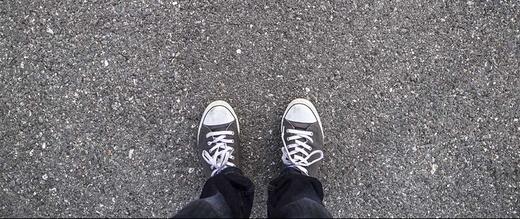


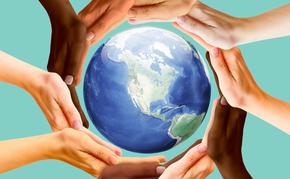



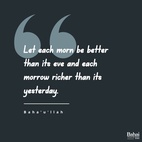

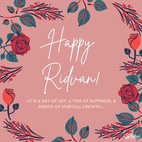
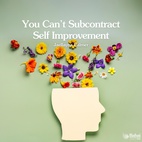
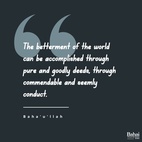
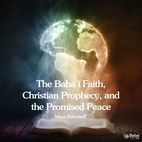
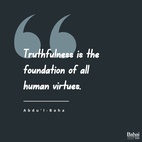

Comments
Sign in or create an account
Continue with Facebookor